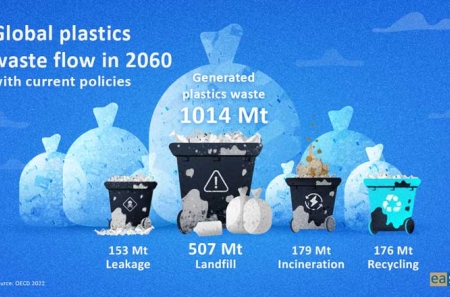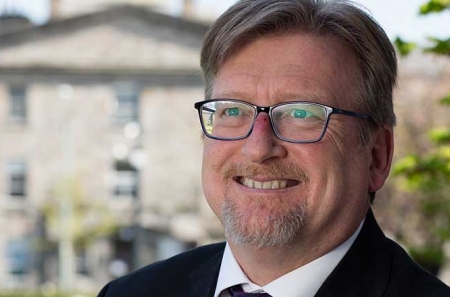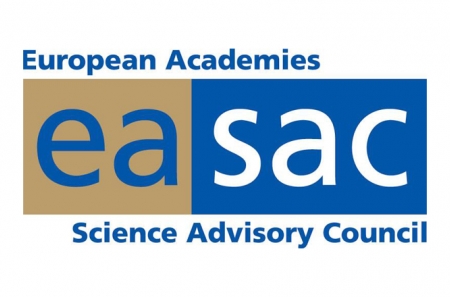
Knowledge Frontiers Symposium
17 July 2019Call for applications to attend the British Academy and the Royal Irish Academy's Knowledge Frontiers Symposium on Friday 31 January & Saturday 1 February 2020 in Dublin.
The Royal Irish Academy and the British Academy are inviting applications for early career researchers in the humanities and social sciences to attend a research collaboration symposium on the broad theme of ‘natures, cultures and communities’. The symposium aims to incentivise and establish international engagement and collaboration between early career researchers from Ireland and the United Kingdom from a broad range of disciplines within the humanities and social sciences, encouraging the exchange of ideas across both disciplinary and national boundaries and supporting the development of bilateral, international research collaborations.
Purpose and Focus
Through the 2030 Agenda for Sustainable Development, the world has committed to undertake one of the most profound social and environmental transformations in human history. In a context of climate change and environmental duress caused by ecological crisis, questions of coping in conditions of extreme vulnerability and stress and new forms of stewardship arise. These require new forms of collaborative knowledge-making and political action, leading to potentially radical alterations in the relationships between nature, culture and community.
This will have a profound impact on how we live and the environment in which we experience our daily lives. It creates new demands and opportunities for the humanities and social sciences to interrogate the drivers, narratives about and controversies around such predicaments, and to contribute centrally to identifying ways forward. This raises new dilemmas around, and ways of understanding, the relationships between human and non-human natures, including how these could be re-theorised and what moral, ethical, political and practical implications might flow from such rethinking.
The symposium invites participants to think of ‘natures, cultures and communities’ across different times and contexts to explore and address the need for creative interventions in social and environmental crises, and how communities in the future, today and in the past have managed (or otherwise) rapid social and natural upheaval and technological change.
it is expected that the theme will be explored through several avenues at the symposium, such as:
-
How has and will human activities, beliefs, values and imaginations shaped and be shaped by natures, cultures and communities?
-
What can varying modes of research and their interplay, such as archaeological, historical, literary, aesthetic, cultural, socioeconomic, political and longitudinal, contribute to our understanding of human-environment interactions past, present and future?
-
How have communities, traditions, mindsets and hierarchies altered previously in the face of natural and cultural change and how could/may they do so in the future looking ahead to the transformations before us?
The symposium format will allow for extensive discussion and debate, with considerable time set aside for this and wider networking opportunities. The symposium will also provide an opportunity for participants to learn more about the different programmes and activities of the Royal Irish Academy and the British Academy.
The Symposium
The symposium will bring together up to forty early career researchers (understood as up to seven years after obtaining a PhD) based in the UK and Ireland from across the humanities and social sciences to discuss key questions around the theme of ‘natures, culture and communities’. The symposium is designed specifically to encourage collaboration and networking between early career researchers. In advance of the symposium, participants will be able to discuss their research and exchange ideas among themselves; begin to discuss the session themes; and make connections for possible future activities.
In order to incentivise long-term collaboration and networking, seed funding will be made available for which participants can apply. These collaborations must be international in their composition and can be either partnerships or groups. Time will be set aside on the final day of the symposium for a ‘sandpit’ style session in which participants write up their proposed collaboration and submit applications by the end of the session. The application form for seed funding will be circulated in advance of the symposium to ensure participants are fully aware of the opportunity and requirements.
In addition to funding several collaborative proposals, the symposium will aim to provide opportunities for a range of other outputs. Participants, for example, could contribute to a publication focused on the symposium theme, either through individual papers or in partnership with other symposium participants, record audio outputs or write posts that will be compiled into an online blog series dedicated to the symposium supported by the Royal Irish Academy and the British Academy.
Eligibility
-
For the purpose of this symposium, early career is defined as being within a seven-year period of the award of the applicant’s doctorate.
-
Participants must be based at institutions in Ireland or the United Kingdom. Participants must have fluency in spoken and written English.
-
Participants must be able to travel on dates and times, and on flights or other modes of transportation chosen by the British Academy and the Royal Irish Academy.
-
Attendance is mandatory for the entire symposium. If this is not met it will result in a participant not being eligible for the seed funding available.
-
UK-based attendees may only participate in two British Academy Knowledge Frontiers Symposia in any 24-month period.
Selection Criteria
Applications will be assessed against the following criteria:
-
Proven research interest and/or experience in the symposium’s theme;
-
Commitment to interdisciplinary engagement and research;
-
Value of symposium to applicant’s career development.
Application Process
Applicants should provide a completed application form (including a CV which should not exceed two pages). Applications must be submitted online using the British Academy's Grant Management System (GMS), Flexi-Grant®. The deadline for submissions is Wednesday 16 October 2019 at 17.00 (UK time). The British Academy will seek to notify successful applicants by the end of November 2019.
Logistics
The symposium will take place in Dublin, Ireland from 30 January to 1 February 2020. The costs of travel and accommodation for participants will be covered following agreement in advance with the organisers.
Further Information
Further information is available from Niamh McCabe at n.mccabe@ria.ie or Chloe Williams at c.williams@thebritishacademy.ac.uk



